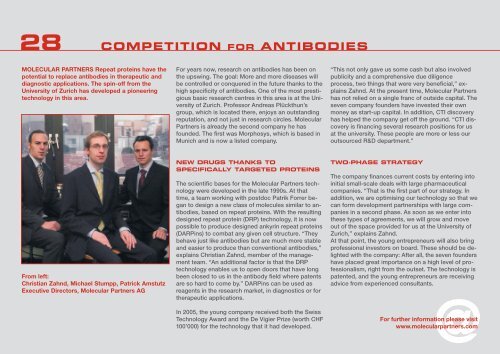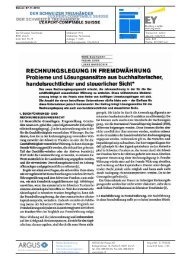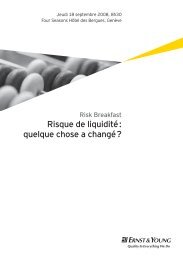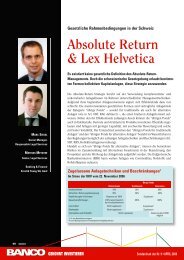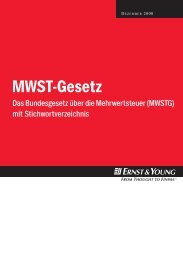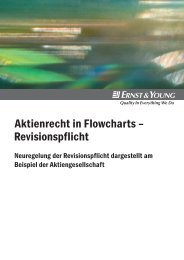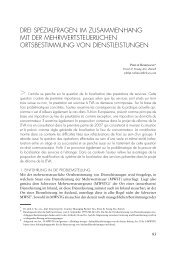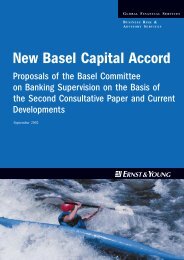Swiss Biotech Report 2006
Swiss Biotech Report 2006
Swiss Biotech Report 2006
You also want an ePaper? Increase the reach of your titles
YUMPU automatically turns print PDFs into web optimized ePapers that Google loves.
28COMPETITION FOR ANTIBODIESMOLECULAR PARTNERS Repeat proteins have thepotential to replace antibodies in therapeutic anddiagnostic applications. The spin-off from theUniversity of Zurich has developed a pioneeringtechnology in this area.For years now, research on antibodies has been onthe upswing. The goal: More and more diseases willbe controlled or conquered in the future thanks to thehigh specificity of antibodies. One of the most prestigiousbasic research centres in this area is at the Universityof Zurich. Professor Andreas Plückthun’sgroup, which is located there, enjoys an outstandingreputation, and not just in research circles. MolecularPartners is already the second company he hasfounded. The first was Morphosys, which is based inMunich and is now a listed company.“This not only gave us some cash but also involvedpublicity and a comprehensive due diligenceprocess, two things that were very beneficial,” explainsZahnd. At the present time, Molecular Partnershas not relied on a single franc of outside capital. Theseven company founders have invested their ownmoney as start-up capital. In addition, CTI discoveryhas helped the company get off the ground. “CTI discoveryis financing several research positions for usat the university. These people are more or less ouroutsourced R&D department.”From left:Christian Zahnd, Michael Stumpp, Patrick AmstutzExecutive Directors, Molecular Partners AGNEW DRUGS THANKS TOSPECIFICALLY TARGETED PROTEINSThe scientific bases for the Molecular Partners technologywere developed in the late 1990s. At thattime, a team working with postdoc Patrik Forrer beganto design a new class of molecules similar to antibodies,based on repeat proteins. With the resultingdesigned repeat protein (DRP) technology, it is nowpossible to produce designed ankyrin repeat proteins(DARPins) to combat any given cell structure. “Theybehave just like antibodies but are much more stableand easier to produce than conventional antibodies,”explains Christian Zahnd, member of the managementteam. “An additional factor is that the DRPtechnology enables us to open doors that have longbeen closed to us in the antibody field where patentsare so hard to come by.” DARPins can be used asreagents in the research market, in diagnostics or fortherapeutic applications.In 2005, the young company received both the <strong>Swiss</strong>Technology Award and the De Vigier Prize (worth CHF100’000) for the technology that it had developed.TWO-PHASE STRATEGYThe company finances current costs by entering intoinitial small-scale deals with large pharmaceuticalcompanies. “That is the first part of our strategy. Inaddition, we are optimising our technology so that wecan form development partnerships with large companiesin a second phase. As soon as we enter intothese types of agreements, we will grow and moveout of the space provided for us at the University ofZurich,” explains Zahnd.At that point, the young entrepreneurs will also bringprofessional investors on board. These should be delightedwith the company: After all, the seven foundershave placed great importance on a high level of professionalism,right from the outset. The technology ispatented, and the young entrepreneurs are receivingadvice from experienced consultants.@For further information please visitwww.molecularpartners.com


